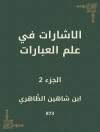This practical, user-friendly resource helps students successfully complete an evaluation capstone: a dissertation, thesis, or culminating project where a student conducts an evaluation as their capstone experience. Authors Tamara M. Walser and Michael S. Trevisan present a framework to support students and faculty in maximizing student development of evaluator competencies, addressing standards of the evaluation profession, and contributing to programs and disciplinary knowledge. Their framework, and this book, is organized by six fundamentals of evaluation practice: quality; stakeholders; understanding the program; values; approaches; and maximizing evaluation use. Throughout the book they use the metaphor of the journey to depict the processes and activities a student will experience as they navigate an evaluation capstone and the six fundamentals of evaluation practice. In pursuit of a completed capstone, students grow professionally and personally, and will be in a different place when they reach the destination and the capstone journey is complete.
Daftar Isi
Preface
Acknowledgments
About the Authors
PART 1: Essentials for Your Journey
Chapter 1 • The Evaluation Capstone
Guiding Questions
Chapter Overview
What Is Evaluation?
What Is an Evaluation Capstone?
Chapter Summary
Chapter 2 • Working Productively With Your Committee
Guiding Questions
Chapter Overview
The Evaluation Capstone as a Process and a Product
Nontechnical Skills in Evaluation Education and Practice
Important Nontechnical Skills for Evaluation Capstones
Choosing a Capstone Chair and Committee Members
Communicating With Your Capstone Chair and Committee
Chapter Summary
PART 2: Navigating the Six Fundamentals of Evaluation Practice
Chapter 3 • Quality: Addressing Professional Evaluation Standards and Guidelines
Guiding Questions
Chapter Overview
What Are the Program Evaluation Standards?
Culturally Responsive Evaluation Practice
Evaluator Competencies
Other Guidance for Evaluation Practice
Meta-Evaluation of Your Evaluation Capstone
Chapter Summary
Chapter 4 • Stakeholders: Working With an Evaluation Client and Other Program Stakeholders
Guiding Questions
Chapter Overview
Who Are Program Stakeholders?
Developing a Stakeholder Engagement Plan and Log
Elements of Effective Stakeholder Interactions
Chapter Summary
Chapter 5 • Understanding: Developing Understanding of a Program
Guiding Questions
Chapter Overview
Why Does the Program Exist?
What Is the Program, and How Is It Intended to Work?
In What Context Does the Program Operate?
Conducting a Review of the Literature for Your Evaluation Capstone
Chapter Summary
Chapter 6 • Values: Engaging Values Through Evaluation Purpose, Questions, and Criteria
Guiding Questions
Chapter Overview
Engaging Values
Evaluation Purpose Statement
Evaluation Questions
Evaluation Criteria
Remaining Flexible
Chapter Summary
Chapter 7 • Approaches: Applying Evaluation Approaches
Guiding Questions
Chapter Overview
Evaluation Theories, Models, and Approaches
Taxonomies of Evaluation Approaches
Choosing an Evaluation Approach
The Relationship Between Evaluation Approach and Design
Developing the Evaluation Design
A Note About Validity and Trustworthiness for Evaluation
Chapter Summary
Chapter 8 • Use: Maximizing Evaluation Use
Guiding Questions
Chapter Overview
Laying the Groundwork for Evaluation Use
Additional Ideas About Increasing Evaluation Use
Types of Evaluation Use
Developing Evaluation Findings and Recommendations
Developing an Evaluation Communication Plan
Evaluation Capstone Reporting Formats
Chapter Summary
References
Index
Tentang Penulis
Dr. Mike Trevisan is the dean of the College of Education and professor of educational psychology at Washington State University, where he has worked for 26 years. Dr. Trevisan has been principal investigator or co-principal investigator on many grants and contracts that require evaluation and has obtained more than $8 million in external funding. Dr. Trevisan is widely published in the field of evaluation and is often tapped as a consultant in the planning, development, and implementation of evaluations at both the local and national levels. He has provided evaluation workshops to K-12 school districts, state agencies, universities, nonprofit groups, the United Nations Population Fund, and professional meetings. His recent work focuses on the development of evaluation capacity internationally. To this end, he has provided evaluation workshops to students, faculty, and practitioners in several countries including India, Italy, and Thailand. In 2018, he received a Fulbright specialist award to Korea to help develop evaluation capacity among K-12 school counselors. Dr. Trevisan co-authored the book, Evaluability Assessment: Improving Evaluation Quality and Use, published in 2015.












